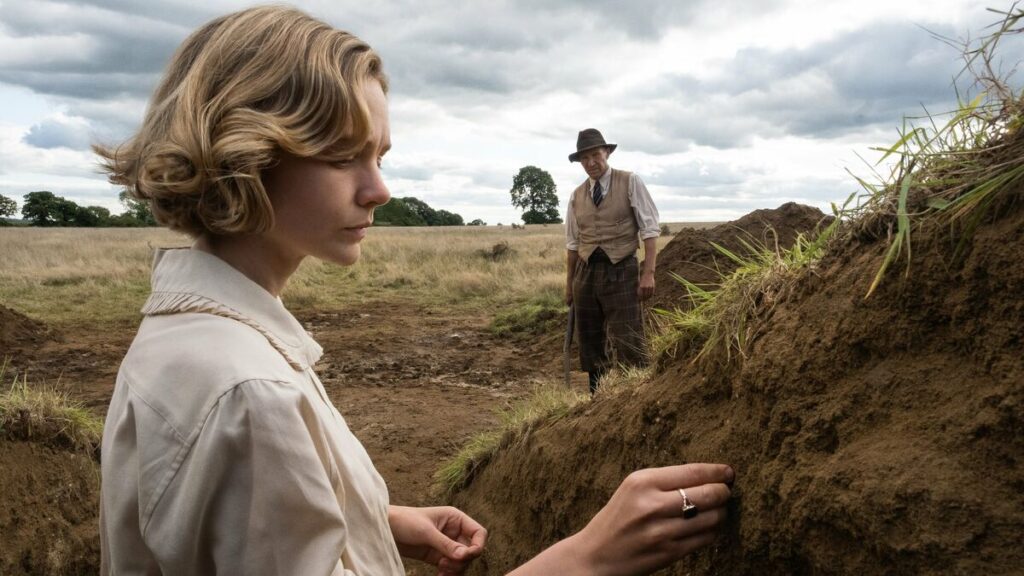
The Dig (2021) is a historical drama based on the novel of the same name by John Preston. The film is concerned with the 1939 archeological excavation of Sutton Hoo in Suffolk England. Director Simon Stone and screenwriter Moira Buffini are primarily concerned with how the discoveries at Sutton Hoo and the impending war impacted the lives of the participants.
The Dig takes stock of the England that was and the England that would be in the wake of WWII. Edith Pretty (Carey Mulligan), the owner of Sutton Hoo and the excavation’s instigator, adds to the film the very immediate question of human mortality and the place an individual finds in the wider scope of human history. In juxtaposition to Edith Pretty is the character Basil Brown (Ralph Fiennes) whose moral conflicts with local and national museums highlight the importance of history to national identity.
In a rather slapdash subplot revolving around Peggy Piggott (Lily James), The Dig attempts a meditation on sexual longing and personal identity. This isn’t entirely unwelcome, but it never really connects to the aforementioned themes that dominate the first hour of The Dig. So much of The Dig revolves around notions of historical fluidity (the idea that history is always being discovered and then rediscovered) so that any distraction sets off the flow of the piece.
This is always a major problem in films like The Dig that are less story driven and more about atmosphere and ideas. Lyrical films are often undone by melodramatic elements which solicit a more potent and precise emotional reaction from viewers. In the case of The Dig, the Peggy Piggott subplot also represents a tonal shift in the visual strategies of the film, pulling the camera away from Sutton Hoo at large to the micro-drama of the doomed Piggott marriage. Simon Stone seems somewhat aware of this danger, attempting to exploit the relationship between Edith Pretty and Basil Brown to a similar end. However this strategy never really gains traction. Instead The Dig‘s overall tone is muddied further.
Mike Eley’s cinematography is incredible in The Dig. Eley has a terrific eye for locale and natural light, imbuing every frame with a sense of authenticity of time and space. The other stand-out factor in The Dig is Carey Mulligan’s performance. Mulligan is always good, but here she is terrific. She manages to convey pain, loss, and joy in a single half-smile. This is the best kind of screen acting in my opinion; where the performer speaks very little yet still speaks volumes with a look.
